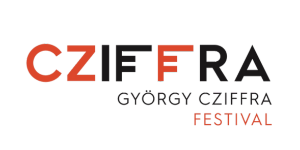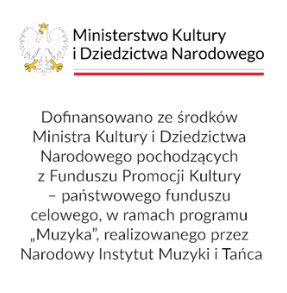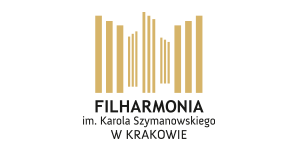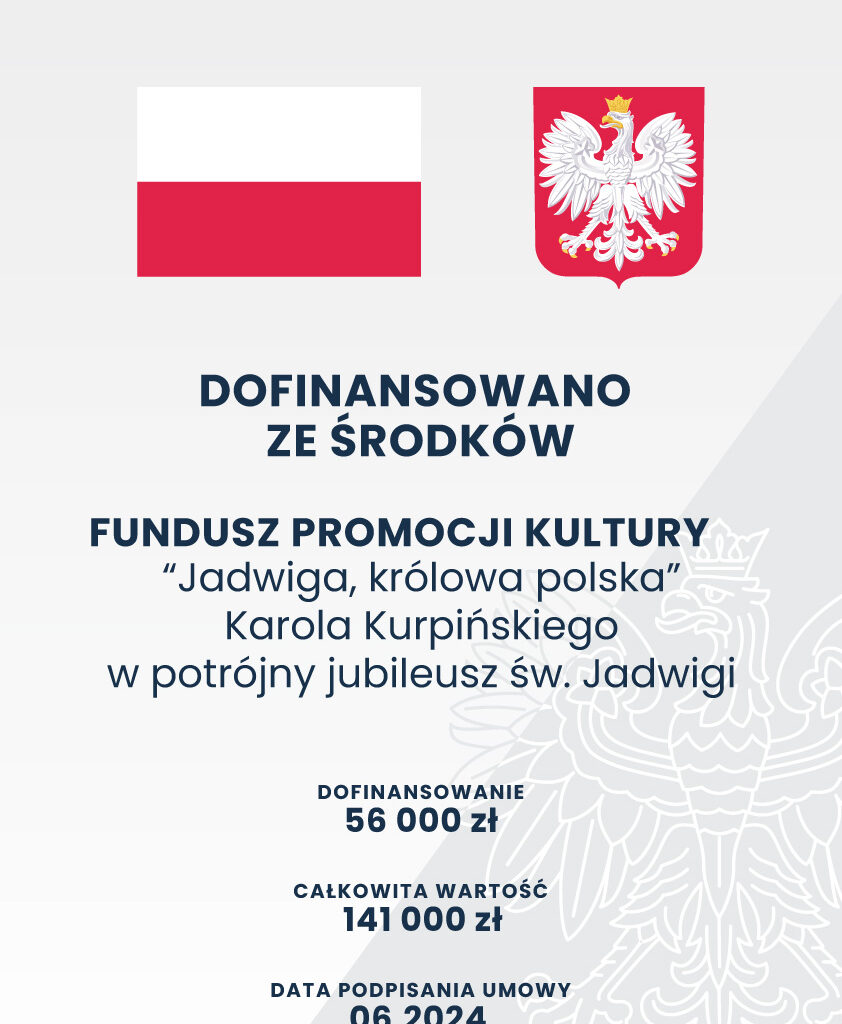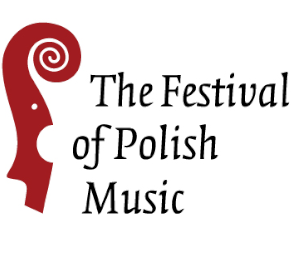at 6 p.m.
Hommage á Cziffra – New Generation
Júlia Pusker and Grzegorz Skrobinski violin-piano recital
Programme:
Karol Szymanowski: Mythes Op. 30
Karol Szymanowski 3 Caprices de Paganini, Op. 40
Henryk Wieniawski: Scherzo tarantella, Op. 16
Bela Bartók: Rhapsody No.1
Zoltán Kodály: Adagio
Bela Bartók: Romanian dances Román Népi Táncok
Ferenc Vecsey: Valse Triste
Jenő Hubay: Carmen Fantasy
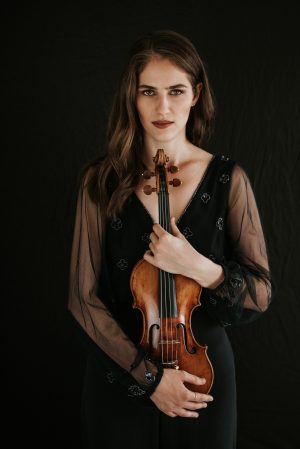

Hommage á Cziffra – New Generation
Júlia Pusker and Grzegorz Skrobinski violin-piano recital
There has been a long-standing cooperation between the Hungarian Cziffra Festival and one of Poland’s most prestigious thematic classical musical festivals, through which – among other things- Chopin’s legacy meets the heritage of the legendary György Cziffra.
An emblematic example of the connection between the musical traditions of the two countries is the joint recital of the Cziffra Festival Talent Award-winning violinist and the pianist and assistant professor of the Fryderyk Chopin University of Music in Warsaw, Grzegorz Skrobinski. The two performers will allow the audience to glimpse into the violin-piano repertoire of the turn of the 20th century through the works of six composers. In the first part of the concert, Polish music will play the lead: Wieniawski’s Scherzo tarantella and Szymanowski’s composition inspired by Paganini (op. 40). In the rest of the evening, the audience can relish a programme arching from Bartók to Jenő Hubay: Bartók’s deservedly popular Rhapsody No. 1, whose verbunkos tune intensifies into a fierce festivity, then a rearrangement from the Romanian dances. The 1905 version of Kodály’s famous Adaggio will be played on the violin this time, followed by a virtuoso composition by a celebrated violinist of the early 20th century, Ferenc Vecsey. The recital will conclude with the Carmen Fantasy of Jenő Hubay, the founding father of the first Hungarian violin school.
An event jointly organised by Cziffra Festival and the Polish Music Festival
Funded by the Prime Minister’s Office, Gábor Bethlen Fund Management Ltd.
Júlia Pusker
Praised by the Strad Magazine for her “magical simplicity” and described as a true “aristocrat” of the violin by La Libre, Júlia Pusker came to international prominence for her prizewinning performances at the prestigious 2019 Queen Elisabeth Violin Competition in Brussels. Recent highlights include concerto appearances with Belgian National Orchestra, Budapest Festival Orchestra, Brussels Philharmonic, Franz Liszt Chamber Orchestra, Hungarian National Philharmonic Orchestra and London Mozart Players. Júlia has been selected for the Rising Stars programme of the European Concert Hall Organisation (ECHO) for the 2023-24 season, when she will perform solo recitals in some of Europe’s most prestigious concert halls. These include Casa da Música Porto, Concertgebouw Amsterdam, Elbphilharmonie Hamburg, Festspielhaus Baden-Baden, Konzerthaus Dortmund, Konserthuset Stockholm, Philharmonie Cologne, Sage Gateshead, Théâtre des Champs-Elysées Paris, Wiener Konzerthaus, and Müpa Budapest, to name just a few. She has already given recitals and taken part in festivals and masterclasses across Europe, including the Besançon Music Festival, IMS Prussia Cove, the Holland International Music Sessions, the Kronberg Academy and the Santander Festival Academy. As a chamber musician, Júlia has shared the stage and collaborated with artists such as Kristóf Baráti, Frank Braley, Gautier Capuçon, Gary Hoffman, Tommaso Lonquich, Jean-Yves Thibaudet and István Várdai. Alongside her success at the Queen Elizabeth Competition, Pusker has been a recipient of various notable prizes, such as the renowned Junior Prima Prize and Cziffra Festival Prize, which honour Hungary’s finest young musicians. Her most recent recordings include Eric Tanguy’s 2nd Violin Concerto with Jyväskylä Sinfonia under the baton of Ville Matvejeff for the Ondine label, and her solo album with Zoltán Fejérvári entitled ‘Schubert on Violin’ for Hungaroton. Born into a family of musicians in Hungary, Júlia began her musical education at the Liszt Academy in Budapest before moving to England to study with György Pauk at the Royal Academy of Music in London, where she received her Master of Music degree with distinction in 2016. Between 2016 and 2021, she was Artist-in-Residence at the Queen Elisabeth Music Chapel in Brussels, working with Augustin Dumay. Júlia plays a Matteo Goffriller violin from 1690, kindly offered on loan from the Michael Guttman Collection.
Grzegorz Skrobiński
Piano soloist and chamber musician, DMA at Fryderyk Chopin University of Music in Warsaw, assistant professor at the University’s Chair of Piano Chamber Music. Graduate of the University, where he studied piano with Prof. Elżbieta Tarnawska, and piano chamber music with Prof. Katarzyna Jankowska-Borzykowska. Has worked under the guidance of leading world educators, such as Kevin Kenner, Dang Thai Son, John O’Connor, Hiroko Nakamura, Sergei Babayan, Vera Nossina, Vera Gornostaeva, Ewa Pobłocka, Andrzej Tatarski, Kazimierz Michalik, Andrzej Bauer, Iwan Monigetii and Jerzy Marchwiński. Has given concerts at majority of prestigious concert halls in Poland, incl. the venues of National Philharmonic in Warsaw, National Forum of Music in Wrocław, National Symphony Orchestra of Polish Radio in Katowice, Sinfonia Varsovia in Warsaw, at Royal Castle in Warsaw, and Krzysztof Penderecki European Centre in Lusławice. Has had several international concert appearances to his credit; has performed in most of the countries of Europe, as well as in Asia and Africa. Collaborates with such outstanding artists, as Konstanty Andrzej Kulka, Bartłomiej Nizioł, Janusz Wawrowski, Agata Szymczewska, or Marcin Markowicz. Has recorded five albums: Modern Soul (CD Accord) with Agata Szymczewska, Different Things (CD Accord) with Marcin Markowicz, Per Musica ad astra (DUX) with Marta Gębska, Halina Krzyżanowska – Chamber Music with Andrzej Gębski, and Nowakowski – Chopin with Warsaw String Ensemble and Marta Gębska, which features such compositions, as Piano Quintet in Eflat major, Op. 17, or Duo, Op. 18 by Józef Nowakowski (world premiere). Has sat on the jury of national and international piano and chamber music competitions. Lecturer at numerous national and international master courses: in Książ, Piła, Łańcut, Kołobrzeg, Zakopane, Lusławice, Suwałki and Krynica Górska.
Zoltán Kodály, Bartók’s peer and rival, was also interested in using folkloric material. However, his popular Adagio for violin and piano (1905) shows no trace of folk music inspiration. It is a miniature maintained in a pure late-Romantic style, noble in the drawing of phrases and imbued with communicative expression.
The late-Romantic idiom is also represented by two miniatures composed by famous Hungarian violinists: Ferenc Vecsey (Valse triste) and Jenő Hubay (Carmen Fantaisie brillante, Op. 3). The former belongs to the salon music movement, while Hubay’s Fantaisie, using the best-known themes from Bizet’s opera, is ‘racial’ concert music. The cantilena factor prevails in it at first over showiness, but the latter comes to the fore as the form develops. In the finale the impressive violin evolutions are truly breath-taking.
Magdalena Dziadek
